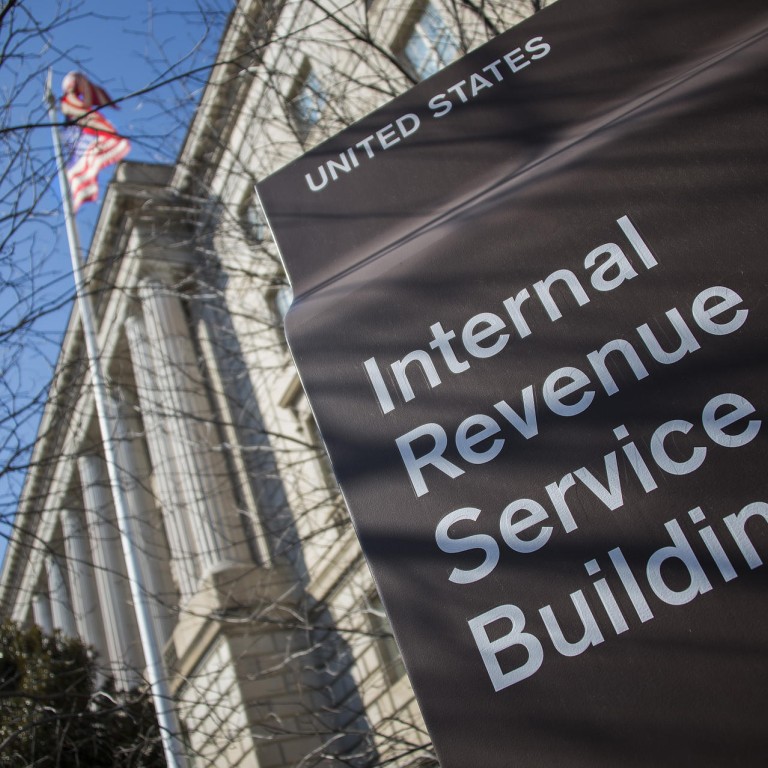
Financial firms struggling with Fatca compliance as deadline looms
The first deadline for the US Internal Revenue Service's new Foreign Account Tax Compliance Act falls on July 1, but will financial institutions in Asia be ready?
Many financial institutions in Hong Kong, Singapore and other parts of the world are facing difficulties complying with the Foreign Account Tax Compliance Act (Fatca), forcing the United States government to put off its enforcement.
Fatca is designed to combat tax evasion by US taxpayers.
Under the act, financial firms around the world are required to report to the US Internal Revenue Service information on clients who are US taxpayers. Those that fail to do so would face a 30 per cent withholding tax on their US income.
[The US has] underestimated the difficulty of complying with Fatca
"By July 1, the original deadline, a big percentage of smaller financial institutions in Hong Kong will not be Fatca-ready," said Toine Knipping, the chief executive of international trust company Amicorp Group.
Even some large financial institutions still had considerable work to do for Fatca compliance, said Karl Egbert, a partner at US law firm Dechert.
From Fatca's first major deadline, July 1, new clients are required to report their US-related information to their financial institutions.
From January 1 next year, financial institutions must start providing their clients' information to the US government.
However, the impact of the July 1 deadline has been lessened greatly by the IRS and US Treasury's recent relief measures, which gave financial institutions more time to complete their Fatca compliance, said Egbert.
The relief measures meant very few financial institutions would face withholding tax penalties if they failed the July 1 deadline, he said.
Last month, the IRS issued a notice saying financial institutions deemed to be making efforts to comply with Fatca "in good faith" will not be subject to withholding tax penalties even if they do not strictly meet the deadline. However, it warned that financial institutions which were not working "in good faith" to comply with Fatca risked facing the withholding tax.
"The US government has greatly underestimated the difficulty of complying with Fatca," Knipping said.
For the January 1 deadline, big banks in Hong Kong should be ready, but not all the smaller financial institutions, he said.
In Singapore, some smaller financial institutions were not ready and had not started compliance preparations, he said.
"So they probably may not be ready by the end of this year. If you go to places like the Philippines, financial institutions will be even less prepared. I can imagine it may become a big mess because too many financial institutions in the world won't be ready," he said.
Only a minority of the smaller financial institutions in Hong Kong were expected to be fully compliant by July 1, said Wouter Delbaere, the Asia-Pacific compliance strategy manager at Wolters Kluwer Financial Services, a US company that provides risk, audit and compliance solutions.
"We know financial institutions which will certainly not be completely compliant by July 1, but we cannot disclose any names," Delbaere said. "Tier-2 and tier-3 banks are much further away [from compliance], and a significant number of banks don't seem to be quite ready yet, which can be confirmed by the many clients still asking us if we can help them with Fatca."
The main reason for this general state of unpreparedness was uncertainty, he said.
"There is still a significant lack of clarity with IRS regulations, as well as future Fatca regulations, which makes it challenging for financial institutions to come up with a solution that not only meets the requirements at hand but also the ones to come," he said.
One reason many financial institutions were unprepared for Fatca was the lack of personnel with the knowledge to explain it to their clients, Knipping said.
Some smaller Hong Kong financial firms started preparing for Fatca late because they expected it would not affect them, said Eric Boes, an international tax consultant with Amicorp.
"A lot of small Hong Kong financial institutions do not realise the importance of complying with Fatca. Many smaller financial institutions in Asia are still in denial," Knipping said. "Many financial institutions in Asia think Fatca does not apply to them because they have no US account. They are wrong, because Fatca applies to anyone with US dollar accounts."

